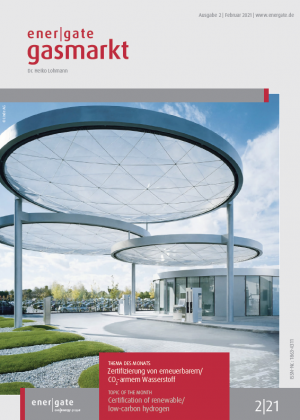An established system of guarantees of origin (GO) for green hydrogen and/or the certification of its sustainability is seen as one of the crucial prerequisites for the market development of hydrogen. The demarcation between the two terms is not trivial. Partially, it merely comes from the different legally defined applications and conditions. Simplified, GO can be defined as a "simple" description of how the hydrogen was produced. Certificates prove sustainability over the whole supply chain. The topic will play a role in the interview with Matthias Altmann. GOs and certificates are needed to make hydrogen and its green properties tradable. They allow - assuming a proper design - the trading of properties and sustainability independent of the commodity.
For power as well as biofuels, such systems were established. The legal framework is the Renewable Energy Directive (RED). For hydrogen, such a legal framework is missing today. It is embedded in the new version of RED, RED II. The new version extends the application of certificates and GOs to synthetic gases and hydrogen. As a side note: In the gas sector, such a system is established for biomethane as a fuel based on RED. RED II has now additionally created the European legal basis for biomethane guarantees of origin. Until now, except for the transportation sector, the biogenic properties are not traded independently - as GOs - from the commodity. The legal framework in the heating and CHP sector requires that over the whole supply chain the delivery of biomethane must be proved by applying a mass balancing system, and that transportation must be organised in separate biomethane balancing groups.



